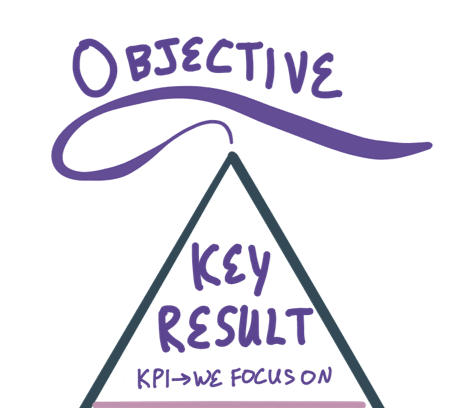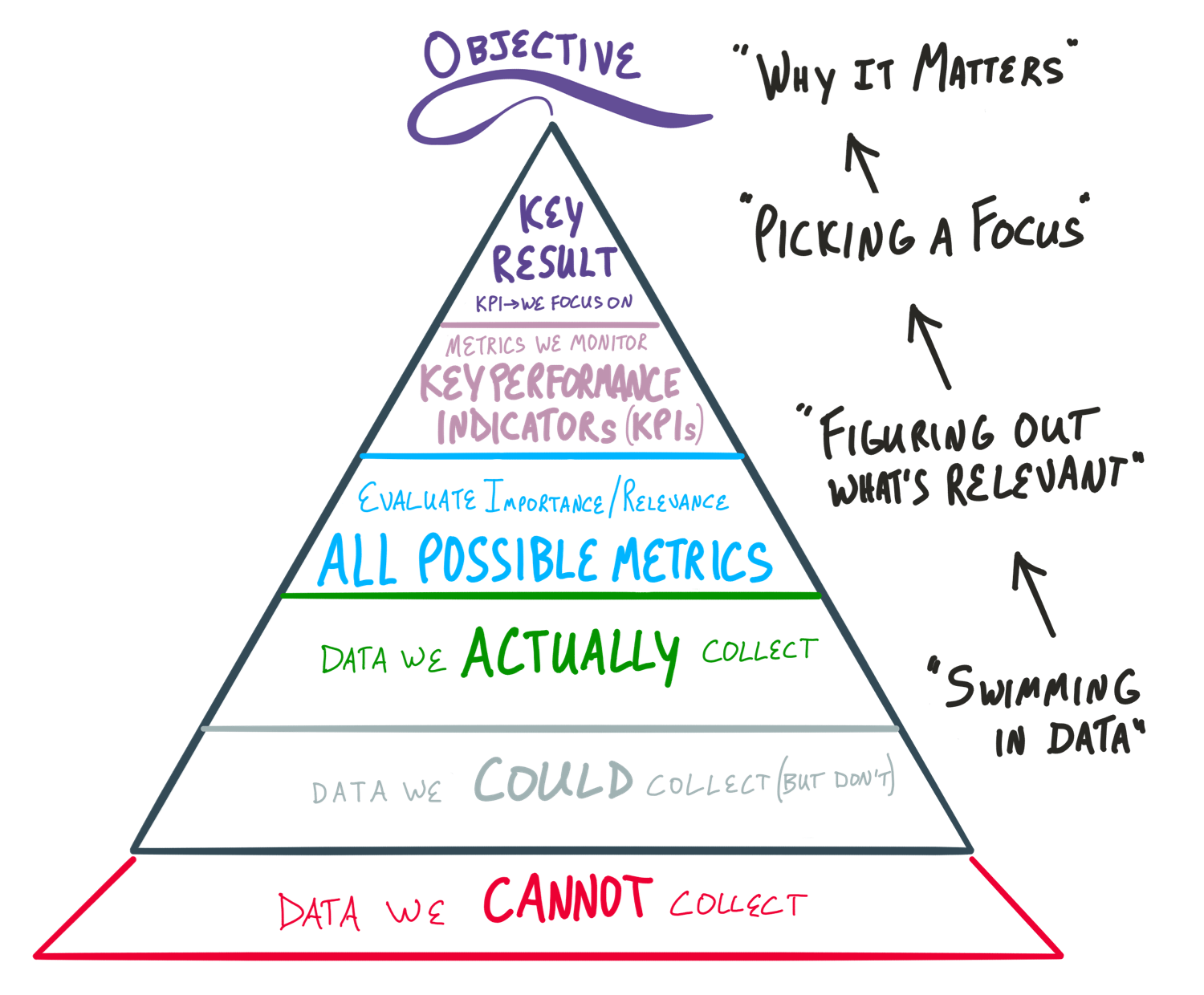Underlying Principles vs Frameworks: OKRs
Growing up as a digital native, I learned many concepts as they were being developed (analytics, SaaS, Cloud).
Today, folks are presented with established concepts (aka, frameworks) and adopt them without knowing the underlying principles.
One of these frameworks is using Objectives and Key Results (OKRs) to run your company, organization, team, product.
As part of the OKRs framework, we SHOULD collect data, watch trends in the data, dream of a future state where that trend is better, and create work to move that trend in our preferred direction.
However, most companies seemed to have just started at the end by dreaming of a better future (aka, setting goals/OKRs) and not investing in collecting data, teaching their employees to find trends and certainly not connecting everyday work to improving these trends.
Use the graphic below to evaluate your progress in using data to improve yourself, your teams and your company.
Where are you in this progression?
“Swimming in data”
“Figuring out what’s relevant”
“Picking a focus”
Evangelizing “Why it matters”
Case Study: From 0 to 60 Million
When my team grew a website from 0 to 60 million annual visitors, we obsessed about results. We didn't specifically set goals or use OKRs. But we analyzed the heck out of visitors' behaviors.
We picked a couple Key Performance Indicators and obsessed over growing those KPIs. I suppose you could call our goal... "make a lot of money".
To get good at this, we evaluated dozens of possible metrics. Only a few of them qualified as Key Performance Indicators since their movement (up or down) signified something substantial had happened to the business.
There were many times where we recognized we were not collecting important data, collecting unnecessary data or had faulty data collection. So we fixed it.
If you're currently focused on OKRs, consider zooming out to see if you and your teams are looking at important KPIs and analyzing if you've got the right data to make decisions.
Becoming an Analytics-Driven Organization
Jim coaches Product Management organizations in startups, growth stage companies and Fortune 100s.
He's a Silicon Valley founder with over two decades of experience including an IPO ($450 million) and a buyout ($168 million). These days, he coaches Product leaders and teams to find product-market fit and accelerate growth across a variety of industries and business models.
Jim graduated from Stanford University with a BS in Computer Science and currently lectures at University of California, Berkeley in Product Management.



